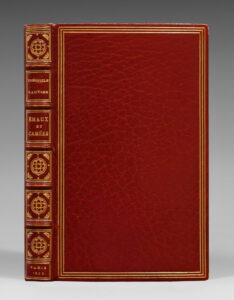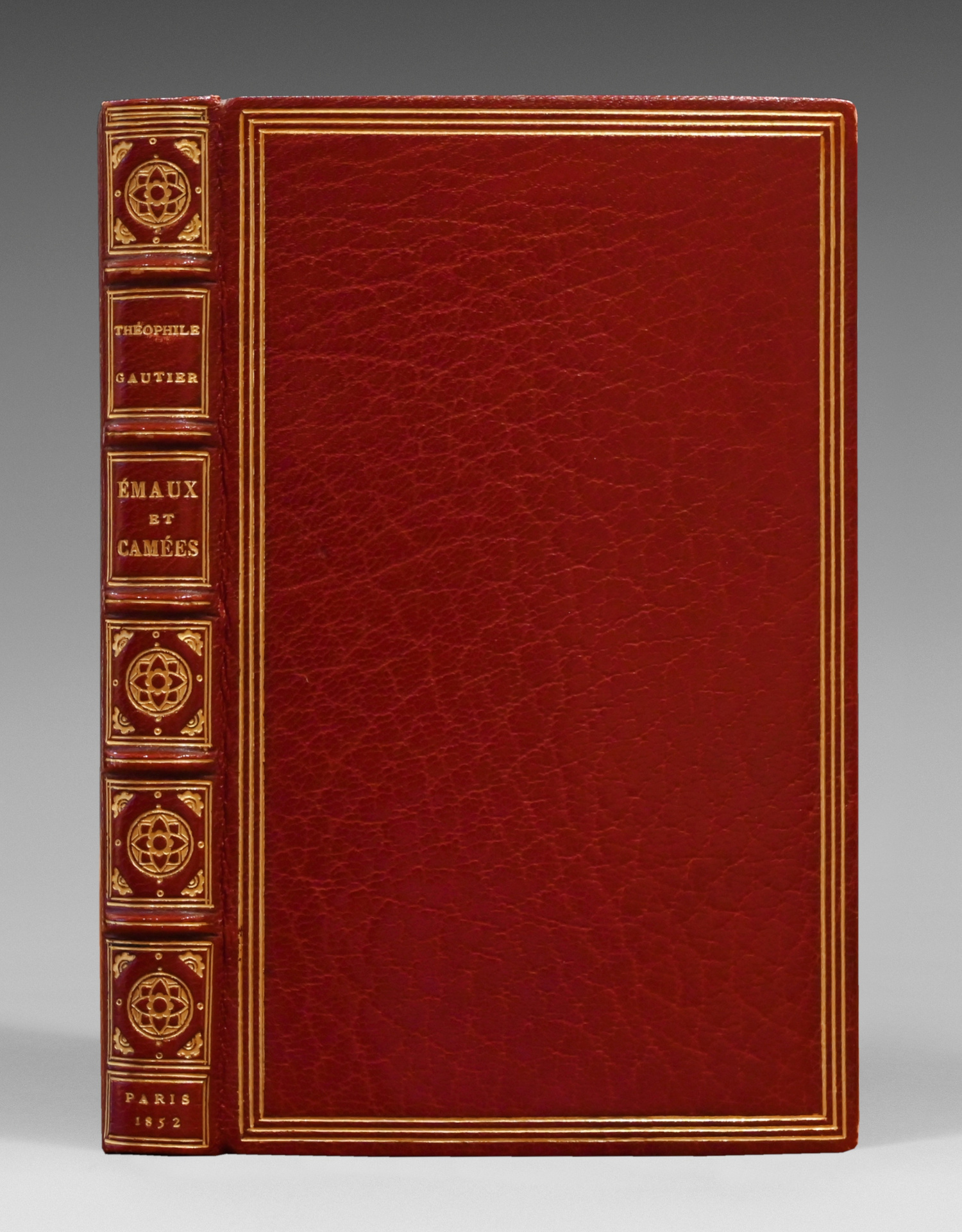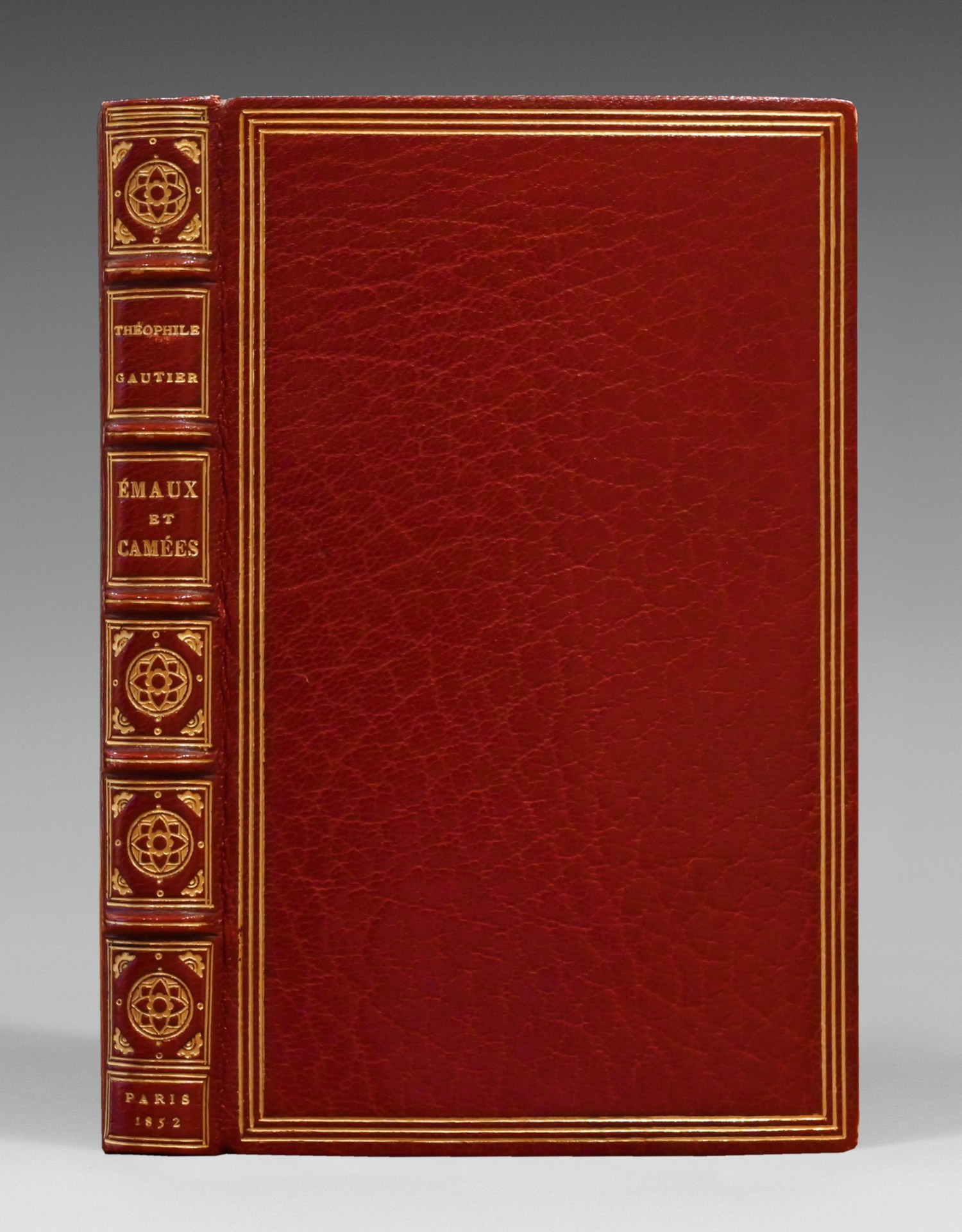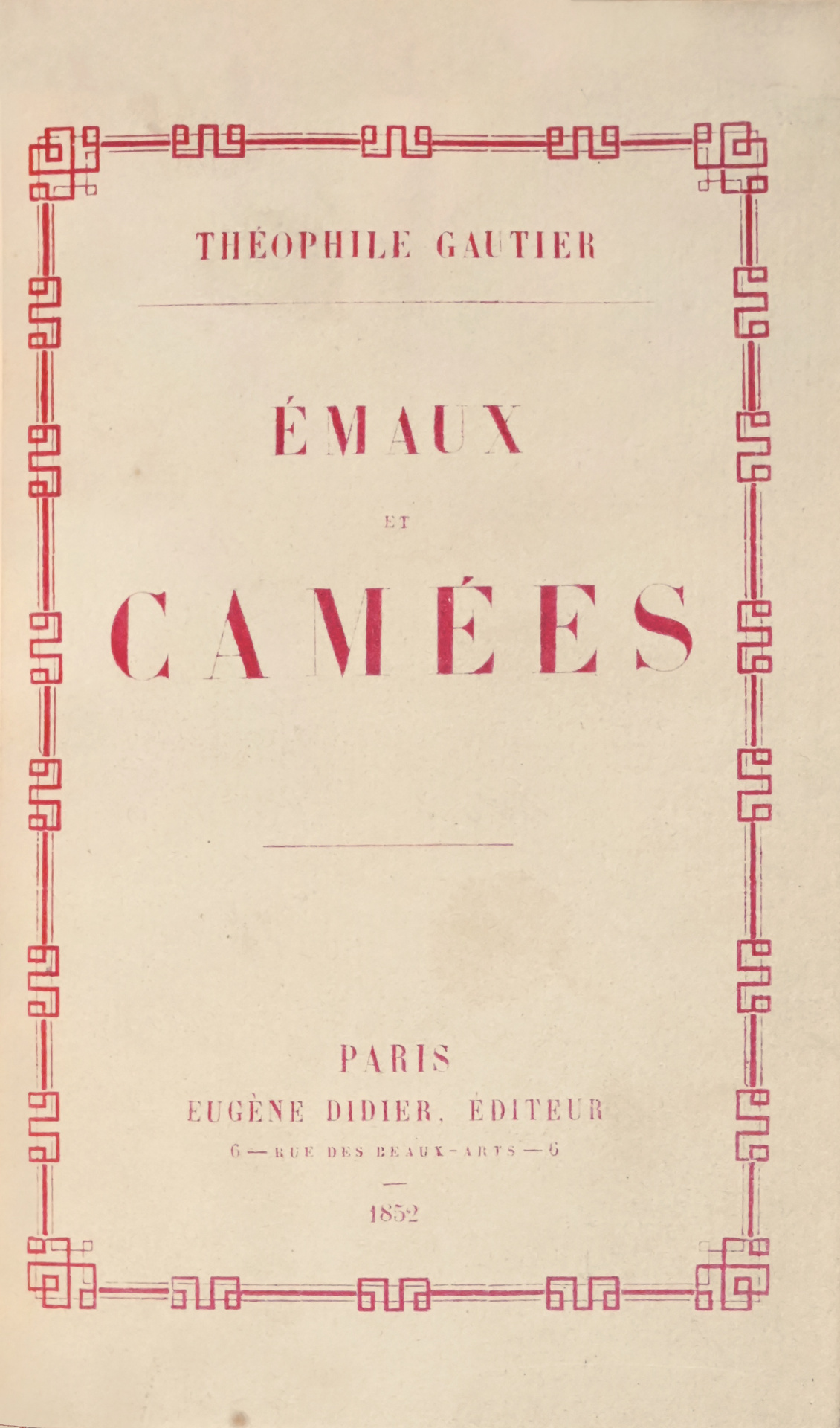Paris, Eugène Didier, 1852.
18mo [146 x 88 mm] of (2) ll., 106 pp, (1) l. of table. Full red morocco, triple gilt fillet around the covers, spine ribbed and richly decorated, burgundy silk endpapers and doublures, gilt edges, white wrappers and spine bound in. Twentieth century binding signed by Marius Magnin.
Rare first edition of this collection of poems “rightly highly esteemed”. (Carteret).
“Charles Baudelaire said of this book that it was a pure masterpiece of a language magician. The original edition is very rare”. (Carteret, I, 329).
“It is the most famous and important collection of poems by Theophile Gautier (1811-1872). Most of the poems in it are very short and written in octosyllabic quatrains. Published in 1852, this book marks the end of the first grêt romantic, idêlist, sentimental and grandiloquent poetry, and inaugurates Parnassian poetry. It comprises some fifty poems, most of them descriptive, in which, in a form of crystalline purity, the author expresses, with lightness and delicacy, the various aspects of the external world. The poem at the beginning of the book serves as an introduction; in it the author proclaims the rights of ‘art for art’s sake’, which moves away from rêlity towards a disinterested contemplation of Bêuty. The last poem clarifies Gautier’s ‘poetics’: the poet intends to give birth to an absolutely plastic and rigorously defined form. Thus a poetic career that had begun with the truculent romanticism of the first verses was decisively directed towards the plastic representation of the ‘sensitive world’. The colour and the admirable sharpness of line of ‘España’ led to the refined elegance of this last collection. For his idês on art, for his sense of the discipline necessary for the artist, for his love of form rightly considered by Baudelaire himself as a ‘master’ (‘Gautier, c’est l’amour exclusif du Bêu, avec toutes ses subdivisions, exprimé dans le langage le mieux approprié’ – Baudelaire). In this characteristic book, the best poems are still those of elegiac inspiration. The originality, the grace of certain exquisite notations are constantly enhanced by a moving sêrch for perfection.” (Dictionnaire des Œuvres, II, 559).
Precious copy with the fragile wrappers bound in.
See less information




